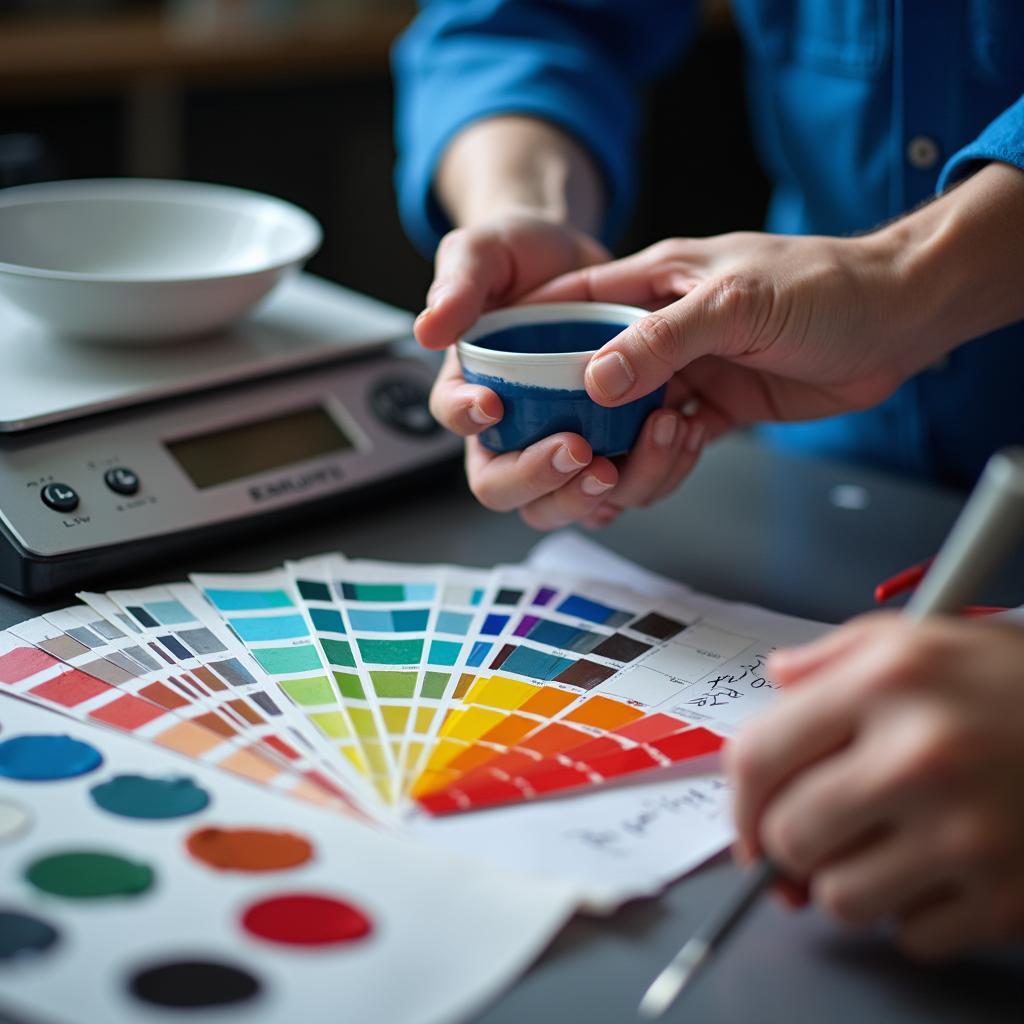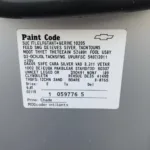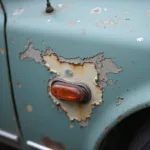Matching car paint can seem like an impossible task. With thousands of shades and finishes available, finding the perfect match for your car’s paint job can feel overwhelming. Whether you’re dealing with a minor scratch, a dent, or larger bodywork, this comprehensive guide will walk you through everything you need to know about paint matching car repair.
Understanding the Importance of a Perfect Match
A perfect paint match is crucial for maintaining your car’s appearance and value. Mismatched paint stands out like a sore thumb, diminishing the overall aesthetics and potentially impacting resale value. Conversely, a seamless paint repair job can be virtually undetectable, preserving your car’s original beauty.
Factors Affecting Paint Matching
Achieving a flawless paint match depends on several factors:
- Original Paint Code: Your car’s manufacturer assigns a specific paint code that details the exact color and finish. Locating this code is the first step in ensuring an accurate match. You can usually find it on a sticker inside the driver’s side door jamb, glove box, or under the hood.
- Paint Fading: Over time, exposure to sunlight and environmental elements can cause your car’s paint to fade. A skilled paint technician will take this into account and blend the paint to match the current shade, ensuring a seamless transition.
- Paint Type: Different car manufacturers and models use various paint types, such as acrylic, enamel, or urethane. Each type has unique properties that affect color matching and application.
- Application Technique: The skill and experience of the technician play a crucial role in achieving a perfect paint match. Factors like paint viscosity, spray gun pressure, and the number of coats applied all influence the final outcome.
The Paint Matching Process: A Step-by-Step Guide
A professional car paint repair shop utilizes a meticulous process to guarantee accurate paint matching:
- Identifying the Paint Code: The technician will begin by locating your car’s factory paint code.
- Assessing the Damaged Area: They’ll carefully examine the extent of the damage and identify any fading or discoloration in the surrounding paintwork.
- Color Matching: Using a spectrophotometer, the technician will measure the color of your car’s existing paint. This device analyzes the light reflected off the surface to determine the precise color composition.
- Custom Paint Mixing: Based on the paint code, spectrophotometer readings, and the technician’s expertise, the paint is custom-mixed to match your car’s specific shade.
- Test Spraying: Before applying the paint to your car, the technician will test it on a sample panel. This allows them to fine-tune the color and ensure a perfect match under various lighting conditions.
- Paint Application: Using specialized spray guns and techniques, the paint is carefully applied to the repaired area, blending seamlessly with the surrounding paintwork.
- Clear Coat and Finishing: Once the paint dries, a clear coat is applied to protect the new paint and provide a glossy finish. The area is then buffed and polished for a flawless result.
DIY vs. Professional Paint Matching:
While DIY paint repair kits are readily available, achieving professional-quality results requires specialized equipment, expertise, and a controlled environment.
DIY Paint Repair:
- Pros: Affordable, convenient for minor scratches
- Cons: Limited color options, risk of mismatched paint, may not be durable
Professional Paint Repair:
- Pros: Accurate color matching, high-quality materials and techniques, durable and long-lasting results
- Cons: More expensive than DIY kits
car color match paint repair cheverolet silver
Tips for Choosing a Paint Repair Shop
Entrusting your car’s paint repair to a reputable and experienced shop is essential for optimal results. Here are some tips for selecting the right shop:
- Ask for recommendations: Seek recommendations from friends, family, or online reviews.
- Check for certifications: Look for shops certified by reputable organizations like I-CAR (Inter-Industry Conference on Auto Collision Repair).
- Request a portfolio: Ask to see examples of their previous paint repair work.
- Inquire about warranties: Choose a shop that offers warranties on their paint repair services.
Paint Matching Car Repair: FAQs
Q: How much does paint matching car repair cost?
A: The cost varies depending on the extent of the damage, the type of paint required, and the labor rates in your area. Minor scratches can be repaired for a few hundred dollars, while more extensive damage might require a larger investment.
Q: Can I use touch-up paint for larger scratches?
A: Touch-up paint is best suited for minor chips and scratches. For larger areas, professional repair is recommended to ensure a seamless blend.
mobile car paint repair bournemouth
Q: How long does it take to match and repair car paint?
A: The time frame depends on factors like the size and complexity of the repair. Generally, you can expect the process to take a few days to a week.
Q: Can faded paint be restored without repainting the entire car?
A: In some cases, professional detailers can improve the appearance of faded paint through techniques like buffing and polishing. However, severe fading might require repainting.
Conclusion
Paint matching car repair is an intricate process best left to the experts. Finding a reputable shop with skilled technicians ensures a seamless, long-lasting finish that preserves the beauty and value of your vehicle. Remember, a perfect paint match can make all the difference in restoring your car to its former glory.



